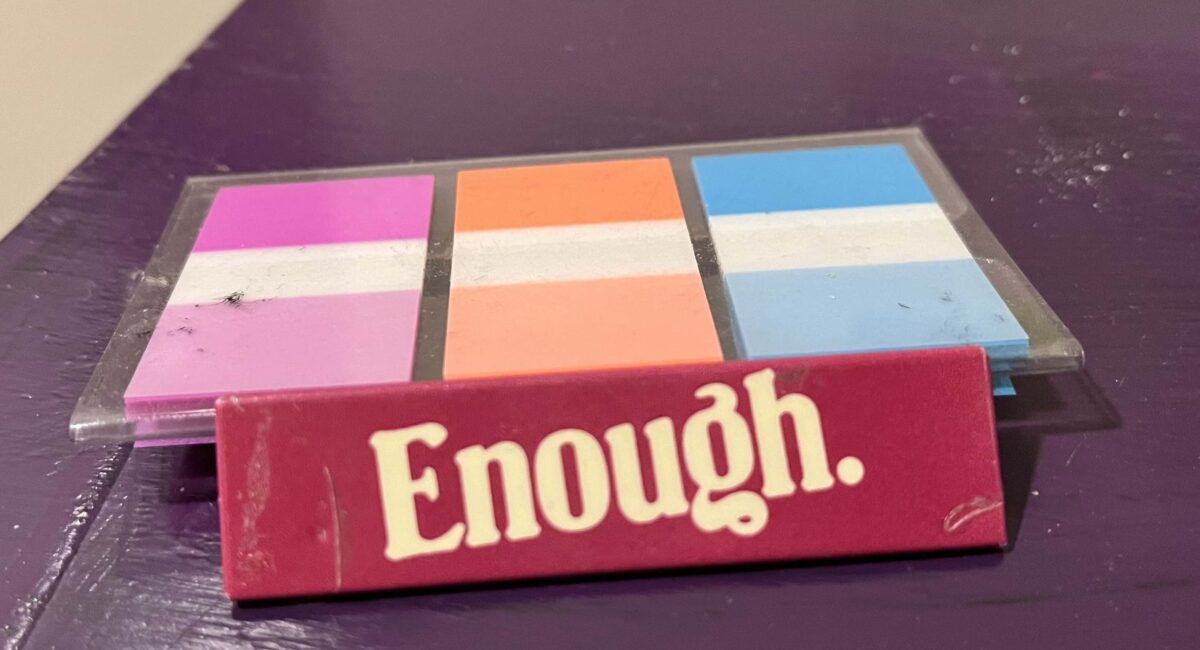First Unitarian Universalist Society Burlington
January 28, 2024
It’s a command: Enough.
It’s a hopeful incantation: Enough.
It’s an expression of gratitude and humility: Enough.
It’s a shuddering surrender in the face of All-Too-Much: Enough.
It’s an affirmation of your, and your, and my, and our, inherent worth and dignity: Enough.

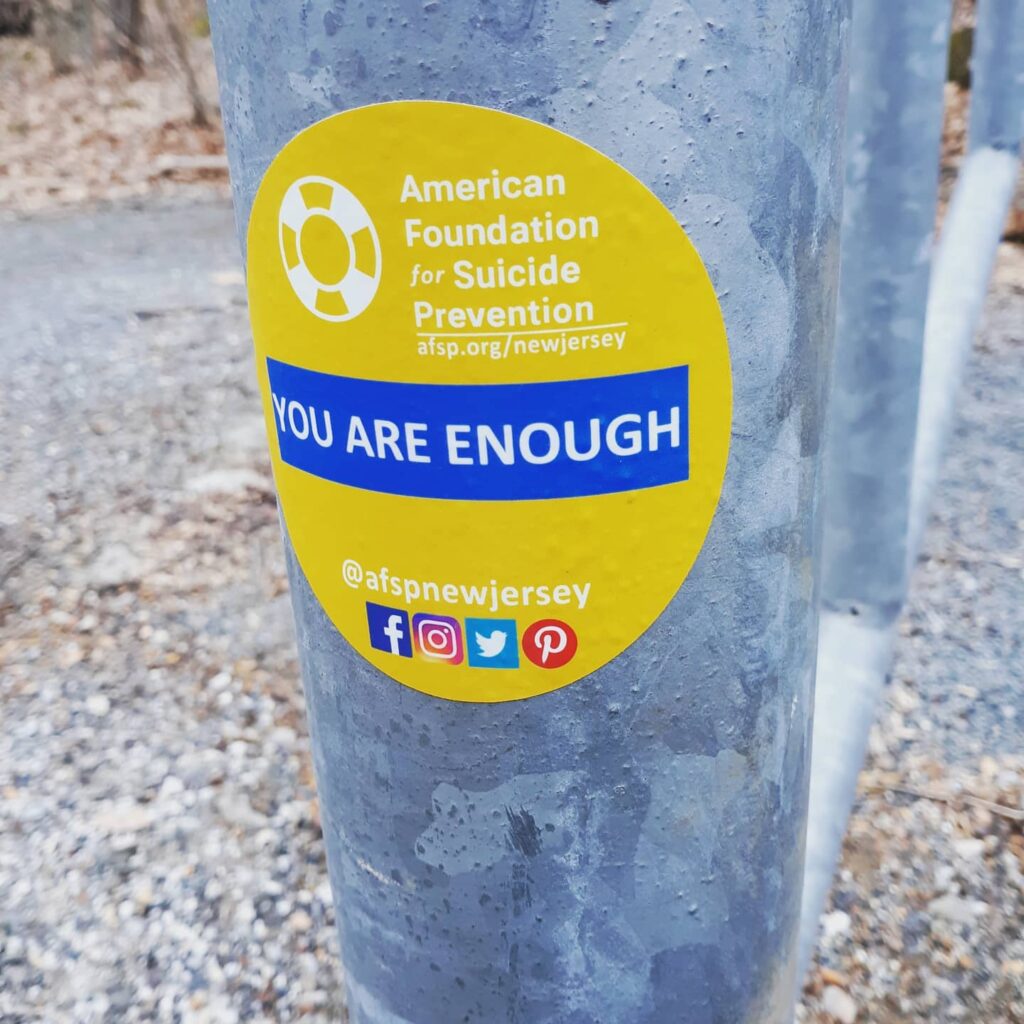
Facebook has a function that shows you posts and photos that you posted on the same day but years in the past. I find it a generally delightful way to take a stroll down memory lane. This week, a memory popped up of a photo I took on a New Jersey street at the end of January in 2020. It was a sticker from the American Foundation for Suicide Prevention and it stated, in bold letters: YOU ARE ENOUGH.
So while this sermon is for all who hear it, whether here in the sanctuary or attending online or watching the recording, this sermon is for those of us who have ever felt the rough edge that can lead to desperate action. And this sermon is for those of us who have been touched by someone who has lost their struggle to know enough as they are.

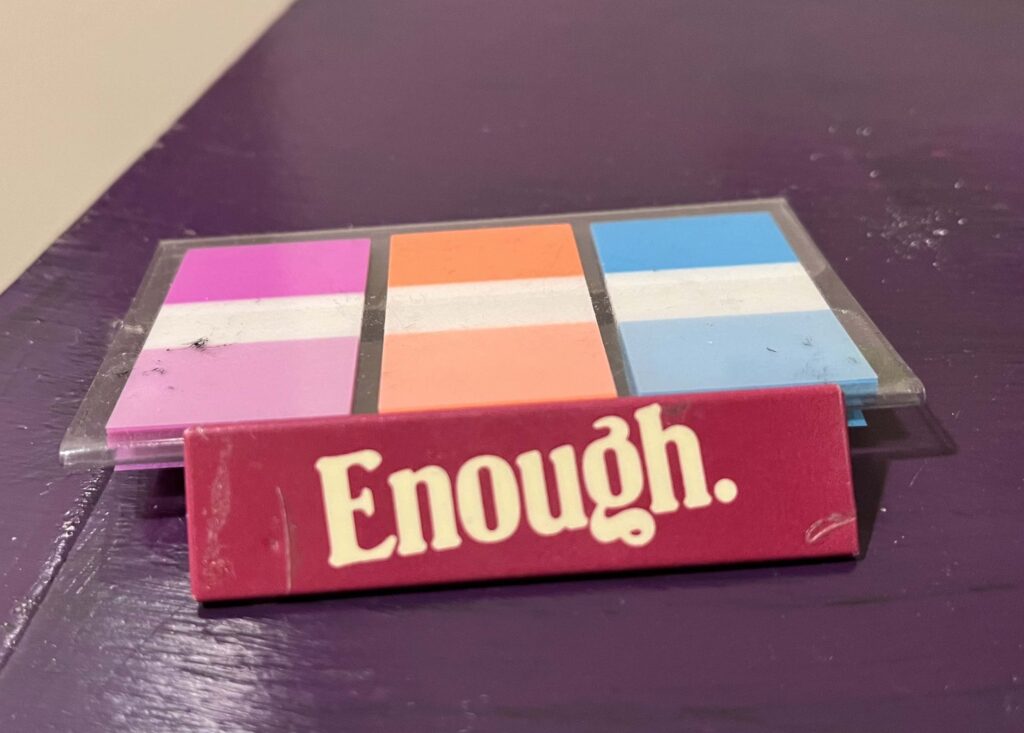
I’m wearing a button I’ve had since college, from a collection that used to adorn my various jackets, from the irreverent to the left-wing political. Most were explicit and clear in their messaging, but this one is just ambiguous enough to apply in many situations: ENOUGH.
Political resistance: an outraged sense of enough in the face of all that has been mercilessly taken from us, twisted and perverted by the profit motive of capitalism. Taken from us by the cultural imperialism of ever more growth and extractivism. Taken from us by the victim-blaming that comes at too high a price from the various systemic oppressions that have insinuated themselves into the warp and weave of our lives.
Emotional resilience: the same enough in the message of the first sentence of the benediction I say to you at the end of every Sunday service:
May you know the blessing you already are.
Full stop. No need to go further.
And a third kind of Enough. In the new language for our Values in Unitarian Universalism, in the new text for Article II that we Unitarian Universalists will be voting on at General Assembly this June, there is this phrase: “never complete and never perfect.”
I experience that phrase ~ “never complete and never perfect” as a corrective and antidote to the perfectionism and the “ever-onward” bent that became part of our Unitarian Universalist cultural heritage. I appreciate that there is a shift happening, one that moves us away from perfectionism and one that questions whether progress is actually promised, which is definitely better than the Calvinist assertion of original sin, but comes with its own pitfalls and delusions and privileges, too often at the cost of others.
A focus on the journey, rather than the destination. A reminder of an essential aspect of Unitarian Universalism: our free and responsible search for truth and meaning.
If we allow ourselves to make our way within “enough,” I believe we will find ourselves in a more sustainable place in the interdependent web of all existence. Accepting enough means forgoing the chase after perfectionism and allows whatever it is we call progress to find a pace more appropriate to the natural worlds around us. Meaning that progress might, in fact, look like degrowth in our economics; might look like redistributing wealth; might look like mutual aid rather than competition.

This morning’s anthem is from the 2017 movie, The Greatest Showman. It tells a great, if not wholly factual, story about P.T. Barum, a religious ancestor of ours (he was Universalist). It is a story of claiming one’s dignity in the face of a larger world that would have otherwise. Sung by the character Lettie Lutz, (played amazingly by Keala Settle) Lettie emerges as the leader among the misfits brought together as Barnum’s Museum of Freaks, put on display, ridiculed by the public. Here is the chorus:
When the sharpest words wanna cut me down
I’m gonna send a flood, gonna drown ‘em out
I am brave, I am bruised
I am who I’m mean to be, this is me
Look out ‘cause here I come
And I’m marchin’ on to the beat I drum
I’m not scared to be seen
I make no apologies, this is me.
Lettie is the quintessential Bearded Lady, which is ~ for the story and for reality ~ sufficient reason to be reviled by hyper-narrow patriarchal standards of beauty. Yet, Lettie also represents another vilified aspect of feminine form: she is fat. Voluptuously fat. And perhaps worst of all, she is unapologetically fat. Lettie, as a bearded, female fat liberationist, comes to understand that just as she is, she is not only enough, she ~ and her fellow misfits ~ are enough and glorious.
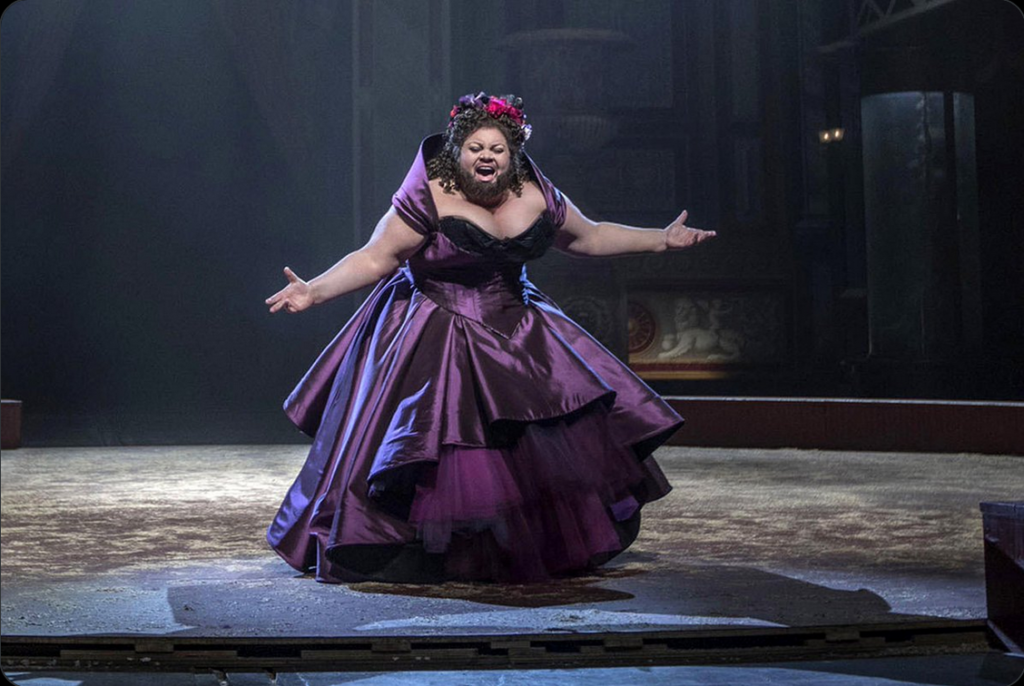
I won’t let them break me down to dust
I know that there’s a place for us
For we are glorious
I wonder, whether or not you have a beard when society says you shouldn’t; I wonder, whether or not your body is a shape that is held up as ideal or trampled upon as some degree of hideous; I wonder, whether or not you see your wholeness reflected in stories told and retold, put on big and small screens, published in high art or mainstream magazines; I wonder: do you long to know in the deepest part of yourself that you are enough, that you are enough and are glorious? And if you already know that you are enough, do you long to be a part of co-creating a world in which all the freaks are recognized as enough and glorious?
Our Soul Matters theme this month is Liberating Love. Ultimately, that’s the reason I chose this topic for the last Sunday of the month. Well, because James said he thought we would be able to sing, This Is Me, a favorite pop spiritual of mine. Thank you, Choir, for yet another magnificent offering that allows us an elegant, embodied, engaging way to enter into the service’s topic.
Liberating Love. It’s part of our year-long exploration of the newly proposed Article II values that deepen our covenant with one another, that reshape the essence of what we have been calling our Principles and will now likely call, if it passes for a second time at June’s General Assembly, Values.
Love. Transformation. Pluralism. Generosity. Equity. Justice. Interdependence. Seven Values with Love at the Center.
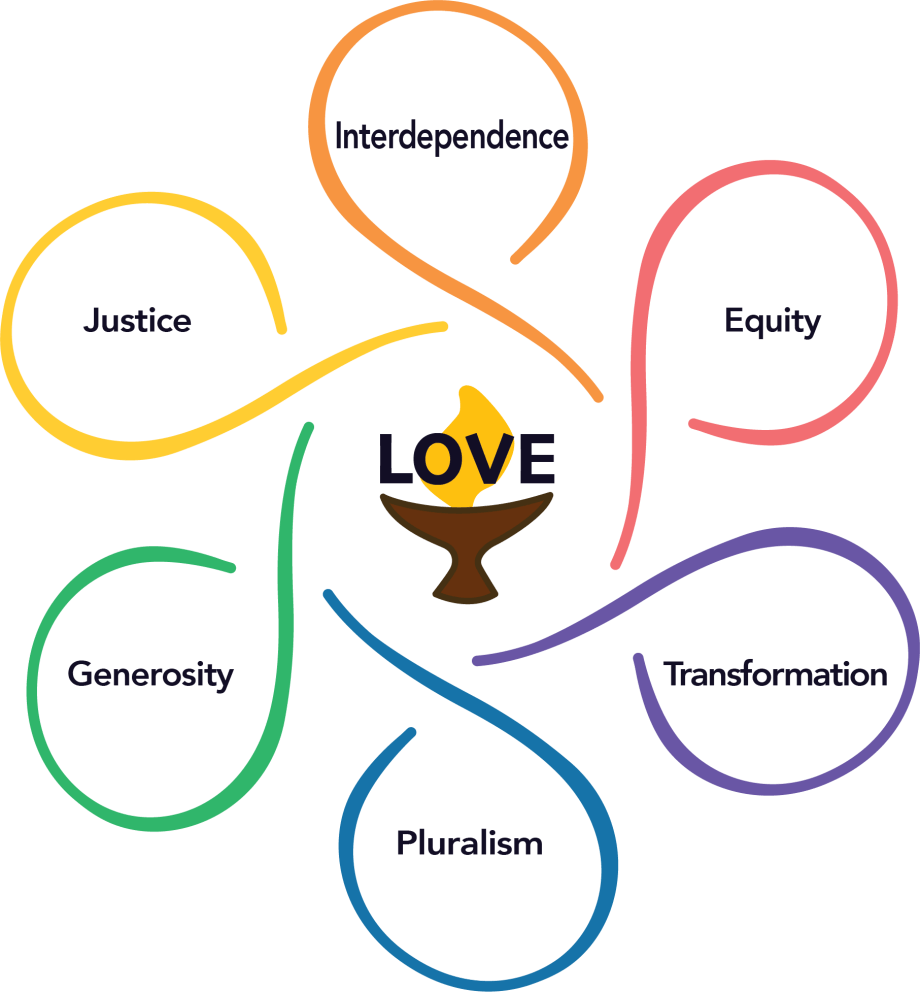
Seven Values with Love described in the following way:
Love is the power that holds us together and is at the center of our shared values.
We are accountable to one another for doing the work of living our shared values through the spiritual discipline of Love.
In that part of the movie where this song is sung, there are three audiences who respond to the Freaks, as they move out of fear and into fierce freedom. There are the rich elites, who are disgusted to have to share space with the inconvenient upstarts. There is the working class rabble holding torches, responding with physical threats and verbal assaults. And during the final verse of the song, there is the admiring audience, smiling and singing along with the Freaks, appreciating them for exactly who they are.
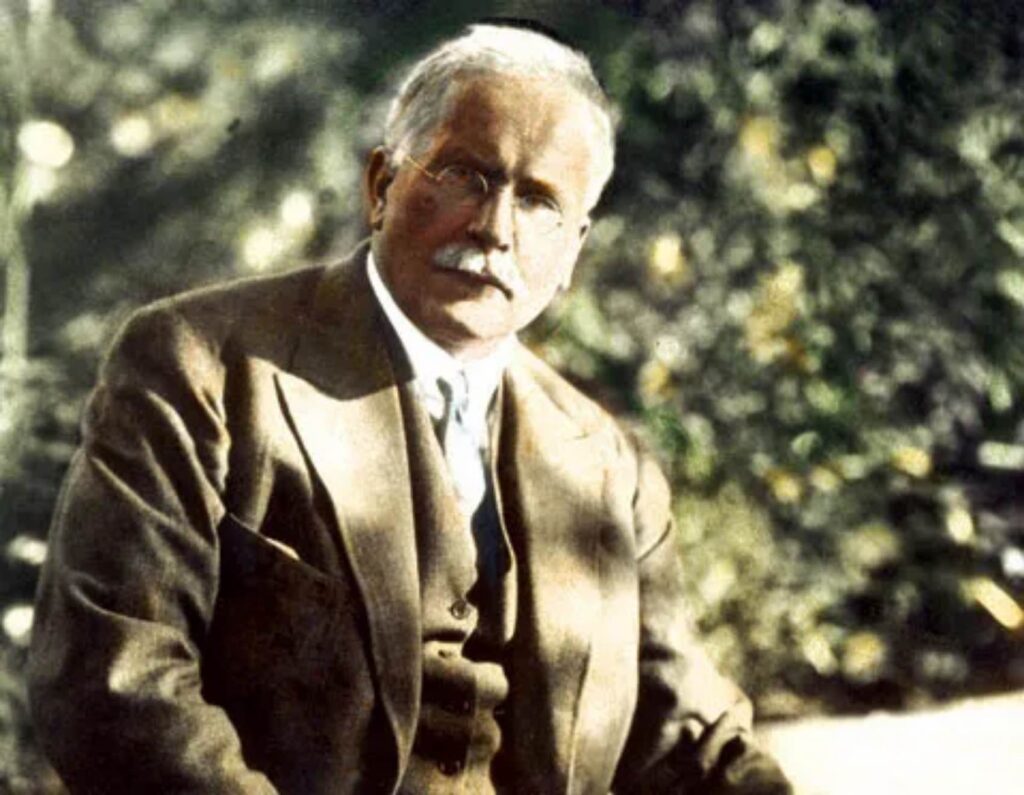
I think it was psychologist Carl Jung who introduced the concept that when we analyze our dreams, every character represents an aspect of ourselves. I want to use that perspective, imagining that the four groups in the movie – the polite; the aggressive; the admiring; and the Freaks themselves – represent some part of ourselves. I want to do this because I believe doing so has something to grow emotional and spiritual resilience, which expands our capacity to be an active and effective part of building Beloved Community.
There is some part of us that experiences a strong, often unconscious, impulse towards othering those who are different from ourselves, even if it goes against our values;
There is some part of us that wants to politely ~ and without causing a stir ~ use whatever social power we have to turn away from those who confront our sense of normalcy and personal comfort.
There is some part of us that feels we are not enough, no matter the degree of privilege we hold, no matter how many self help books we read, Tiktok videos we watch, or hours of therapy we’ve done.
And there is some part of us that greatly admires and celebrates the diversity of the whole human family.
Yes, we have all four within us. Contradictory and paradoxically. Both enough as we are, “never complete and never perfect,” and also moved to live a life of when we know better, we do better (once again, paraphrasing Maya Angelou as I did a few weeks back).

There is something about experiencing one’s enough-ness that feels, to me, alot like knowing one’s worth is inherent, that one’s self has dignity. There is something about honoring, or even celebrating, the enough-ness of others that feels, to me, alot like recognizing and affirming the inherent worth and dignity of every individual. There is something about centering and prioritizing the enough-ness of those who are systematically marginalized and demeaned, who are regularly considered less-than, that feels, to me, alot like moving toward Beloved Community – or Beloved Communities.
While there is no single definition of enough or enough-ness, as the meaning of this concept is super subjective, is highly dependent upon one’s social location, as well as one’s story – personal story, ancestral story, I want to offer two that move me. Guided by our commitment to the 8th Principle, I have gone looking for definitions of “enough-ness” from sources that raise up the perspectives and voices of women of color.
I share these voices, believing they have something powerful to add to any conversation. I share these voices, knowing that some of what gives their voice a sense of authority, is their social location, which is another way of saying their cultural identity, which I (and many, in fact, most in this congregation) do not share … so I bring their voices here with humility and respect, with the goal of amplification, not appropriation.
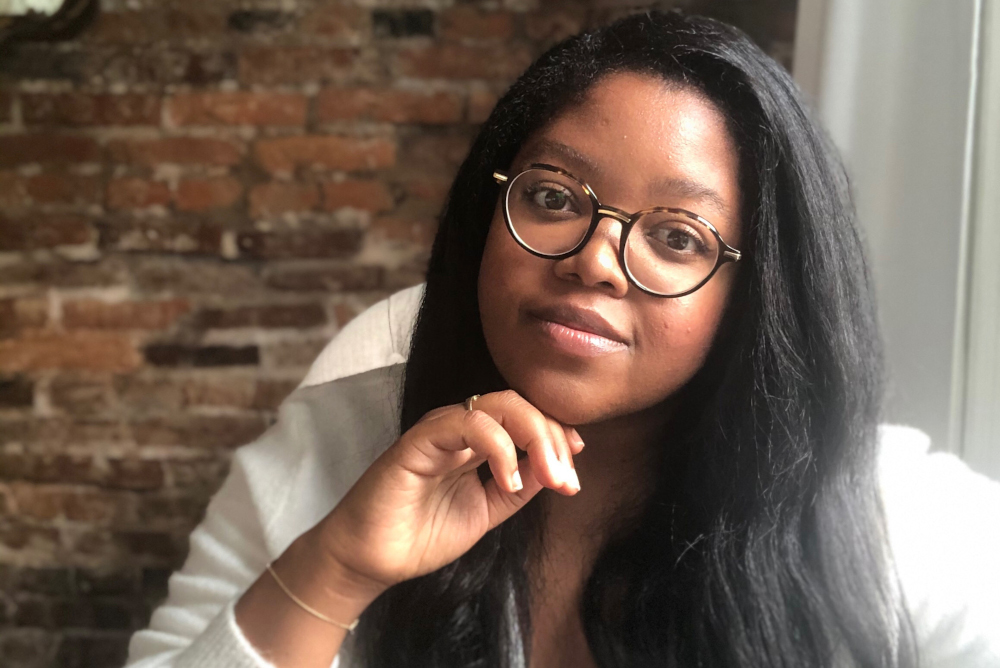
Here are the words of Cole Arthur Riley, from her second book, Black Liturgies, published just last week:
I don’t know what dignity is. Not cognitively. But I know what it feels like. To be loved, to receive honor, to be encountered as a human, not because of any demonstration, or performance of such, but because, in mystery, your very being is a miracle, your existence, a delicate stitch in the cosmos. Dignity will never depend on anyone’s belief in it, certainly not your own. It is not born of writing , even excellent writing. Or excellent research or beautiful architecture or good parenting. It is inherent. If I never write another word, my dignity cannot be diminished.
And yet, the world has a choice: to honor, or not to honor. The toll this choice takes has very real implications on our rights, our wealth, our justice, our children, and even our perceptions of dignity, but never dignity itself.
Let me repeat the start of that passage, because it is so powerful:
I don’t know what dignity is. Not cognitively. But I know what it feels like. To be loved, to receive honor, to be encountered as a human, not because of any demonstration, or performance of such, but because, in mystery, your very being is a miracle, your existence, a delicate stitch in the cosmos.
Just let that form of enough-ness sit with you, stay with you.


In this month when our Earth Teacher is gravity, I share this passage with you, from community organizer, somatic healer, and author, adrienne maree brown, from her book, Pleasure Activism: The Politics of Feeling Good. As I read it aloud, see if you can feel this version of enough-ness:
I also began to feel my true center, my center of gravity, the center of my being. It was a place inside myself that was as vast as the ocean, that gave me the resources I needed to feel all my feelings and still be in my dignity, to make mistakes and still be in my dignity, still be connected to other people, to stay open and present.
Pleasure Activism
To make mistakes and still be in my dignity. That dignity – enough-ness – exists outside of perfection, before and after perfection, under and over perfection. It is that phrase: “never complete and never perfect”… yet still inherently worthy, yet still inherently dignified.

Enough. Enough. Enough.
A command. An incantation. An expression of gratitude and humility. A surrender. A lamentation. A lullaby? A litany. An affirmation. A covenant with and for each other.

